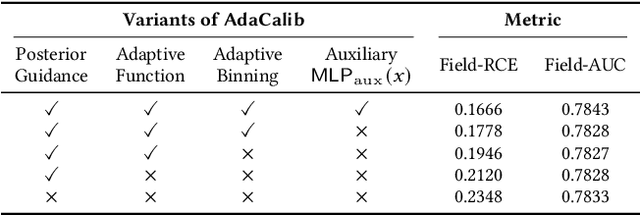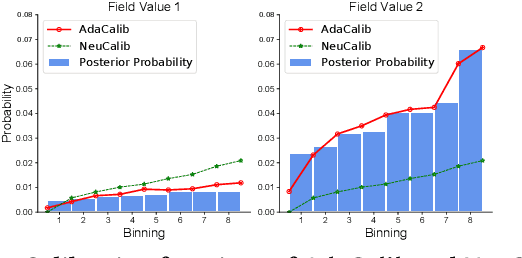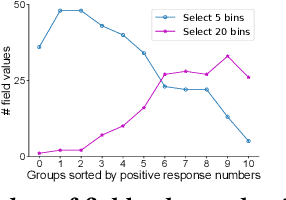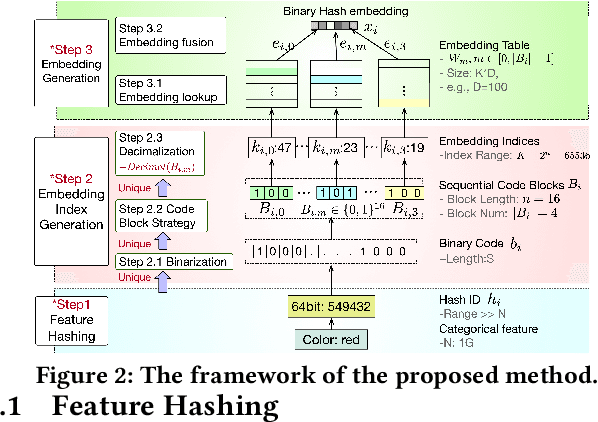Jinquan Liu
Posterior Probability Matters: Doubly-Adaptive Calibration for Neural Predictions in Online Advertising
May 15, 2022



Abstract:Predicting user response probabilities is vital for ad ranking and bidding. We hope that predictive models can produce accurate probabilistic predictions that reflect true likelihoods. Calibration techniques aims to post-process model predictions to posterior probabilities. Field-level calibration -- which performs calibration w.r.t. to a specific field value -- is fine-grained and more practical. In this paper we propose a doubly-adaptive approach AdaCalib. It learns an isotonic function family to calibrate model predictions with the guidance of posterior statistics, and field-adaptive mechanisms are designed to ensure that the posterior is appropriate for the field value to be calibrated. Experiments verify that AdaCalib achieves significant improvement on calibration performance. It has been deployed online and beats previous approach.
Binary Code based Hash Embedding for Web-scale Applications
Aug 24, 2021



Abstract:Nowadays, deep learning models are widely adopted in web-scale applications such as recommender systems, and online advertising. In these applications, embedding learning of categorical features is crucial to the success of deep learning models. In these models, a standard method is that each categorical feature value is assigned a unique embedding vector which can be learned and optimized. Although this method can well capture the characteristics of the categorical features and promise good performance, it can incur a huge memory cost to store the embedding table, especially for those web-scale applications. Such a huge memory cost significantly holds back the effectiveness and usability of EDRMs. In this paper, we propose a binary code based hash embedding method which allows the size of the embedding table to be reduced in arbitrary scale without compromising too much performance. Experimental evaluation results show that one can still achieve 99\% performance even if the embedding table size is reduced 1000$\times$ smaller than the original one with our proposed method.
 Add to Chrome
Add to Chrome Add to Firefox
Add to Firefox Add to Edge
Add to Edge